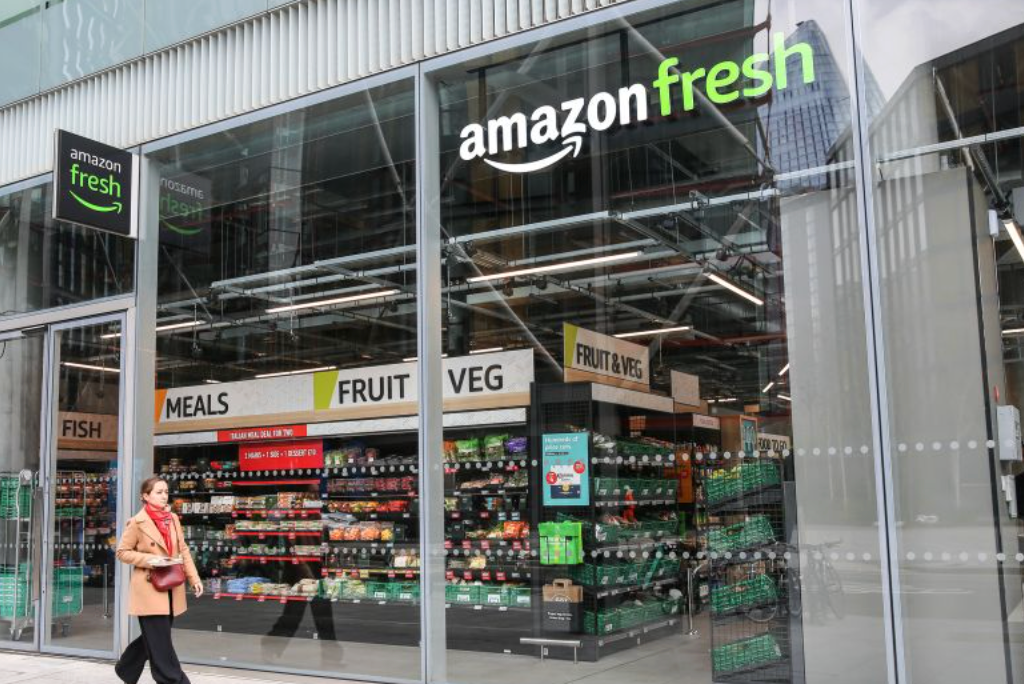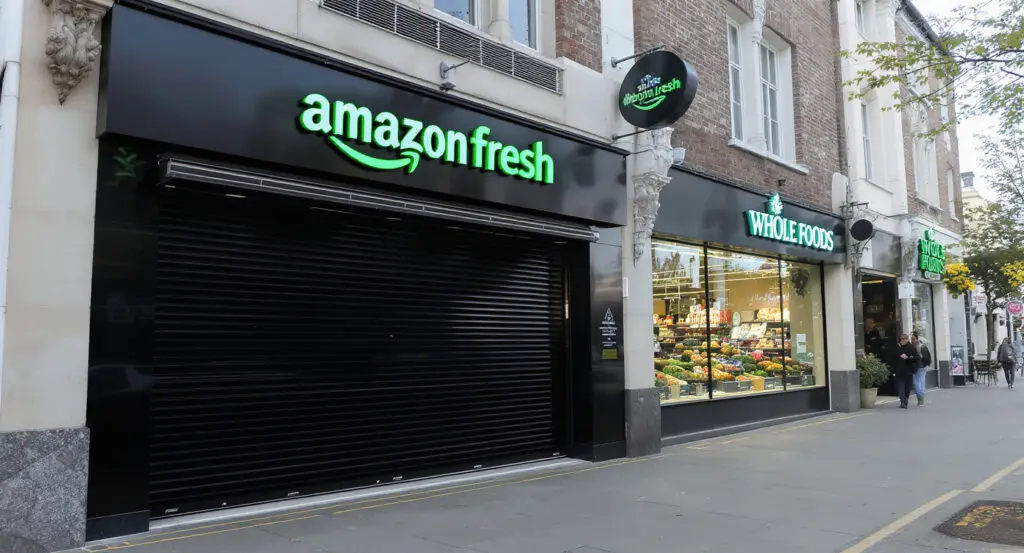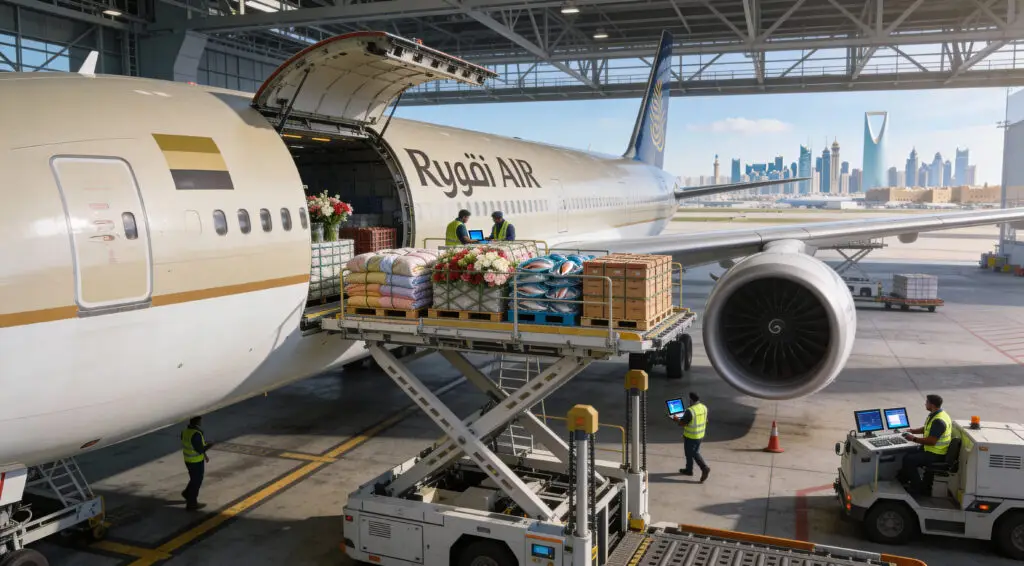Amazon Fresh Stores Leave the UK
After four years, Amazon has confirmed that all 19 Amazon Fresh stores in the UK will close. British shoppers didn’t like the experiment, which shows how hard it is to compete with big supermarket chains that have loyal customers.
The company will turn five of its existing Fresh stores into Whole Foods stores, which is a shift toward more traditional high-end retail formats. Analysts say that this restructuring shows that Amazon wants to put money into grocery divisions that are doing well instead of ones that aren’t.

Souce: CNN
The Till-Free Technology Didn’t Get Off the Ground
In 2021, Amazon Fresh started offering cashierless shopping, which used sensors and apps to automatically charge customers when they left. During the pandemic, the new idea got people interested, but after that, it didn’t keep people interested.
Even though it was cutting-edge, the system didn’t make shopping in the UK easy enough to change people’s habits. Analysts say that people were less likely to use the futuristic model because they were used to traditional supermarkets and were sensitive to price.
Post-Pandemic Decline in Contactless Demand
The pandemic made contactless shopping easier, which helped Amazon Fresh get more attention and become more relevant early on. But as the restrictions ended, interest faded, and people went back to shopping for groceries the old-fashioned way.
Supermarkets like Tesco and Sainsbury’s kept their dominance, which meant that Amazon couldn’t get a big share of the market. This poor performance showed that most buyers preferred established value chains that were reliable and offered competitive prices.
Recommended Article: Nvidia Confirms $100 Billion Investment in OpenAI Partnership
Impact on Amazon Employees Remains Unclear
Amazon hasn’t said how many workers will be affected by the store closings. Instead, the company promised to move the affected workers to other parts of its huge business.
Even though staff can be reassigned, they are still unsure because changes in operations can be disruptive. Critics point out that workers may still face instability, no matter what Amazon says about redeployment.
Strategic Shift Toward Whole Foods Expansion
Amazon will now focus on Whole Foods, using its high-end status to boost its overall grocery power. The organic grocery store chain, which was bought in 2017, has been running on its own, but it will be more integrated.
Amazon puts all of its resources into Whole Foods, which is a business with a proven customer base and room to grow. This plan is different from Amazon Fresh, which didn’t live up to expectations and always fell short.
Amazon Strengthens Grocery Partnerships and Prime Access
Amazon also said it would double the number of UK Prime subscriptions and add more grocery benefits. Members will have more access to fresh food options thanks to partnerships with Morrisons, Iceland, Co-op, and Gopuff.
The program shows that Amazon is serious about becoming the best at grocery delivery, even though it is closing its physical Fresh stores. Prime is still a big part of this plan because it offers bundled services that keep customers interested.
Regulatory Pressure Intensifies on Amazon’s Grocery Operations
In the UK, Amazon’s grocery business is under more regulatory scrutiny, especially when it comes to how it works with suppliers. To make sure that payments are made on time and that everyone is treated fairly, the Groceries Supply Code of Practice must be followed.
The Groceries Code Adjudicator started looking into Amazon in June because they were accused of delaying payments to suppliers. The outcome could have a big effect on how trustworthy Amazon is seen as a business in the UK grocery industry.
Amazon Reinforces Long-Term Commitment to UK Market
John Boumphrey, the manager of Amazon UK, said that the company is still committed to making grocery shopping better, even though Fresh stores are closing. He stressed the need for ongoing work to provide convenience, low prices, and a wide range of options through digital platforms.
The company says that its long-term plan is to keep trying new things while focusing resources on proven, scalable projects. This method strikes a balance between stability and innovation, which helps Amazon stay competitive in a tough grocery market.























